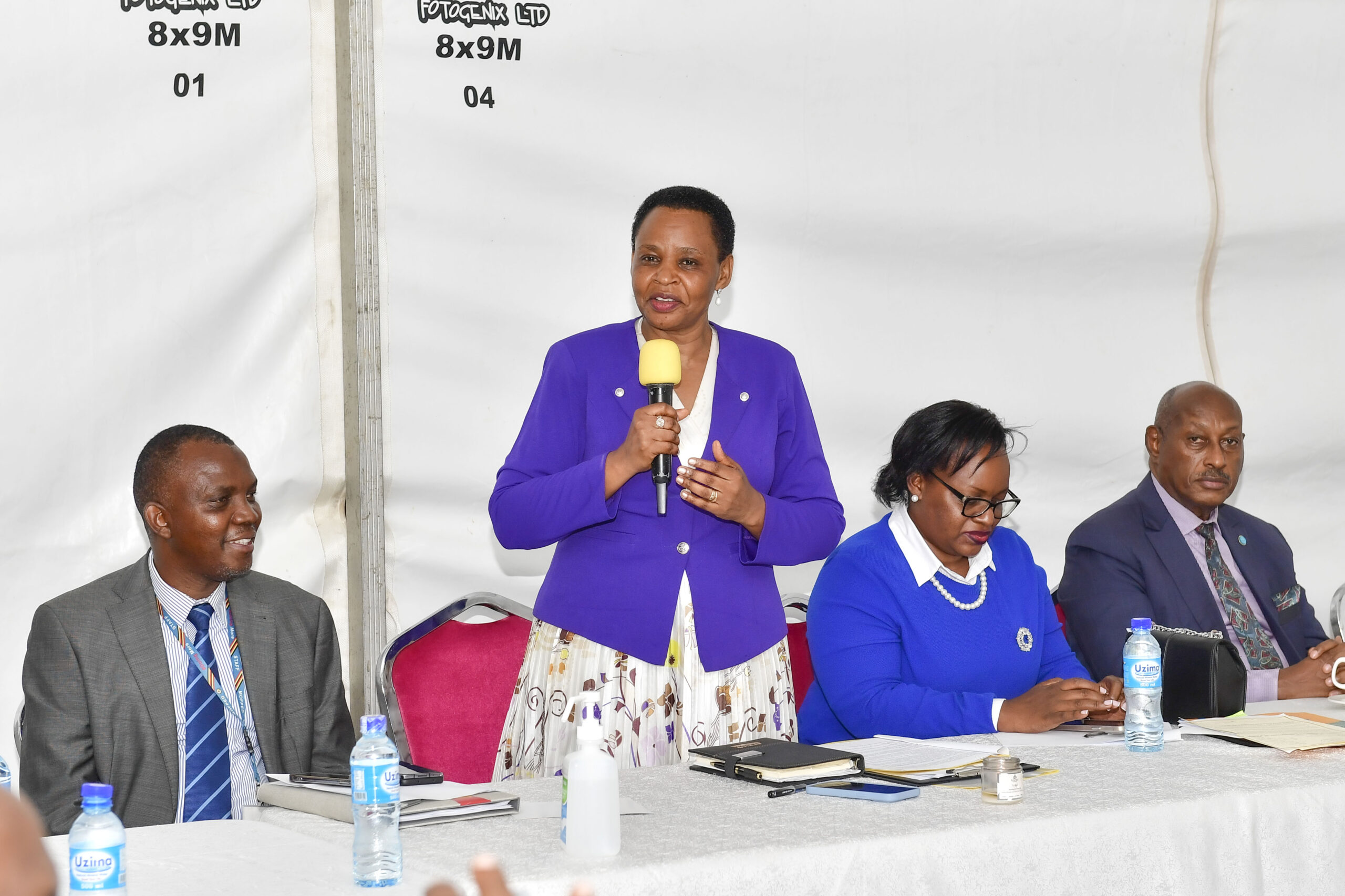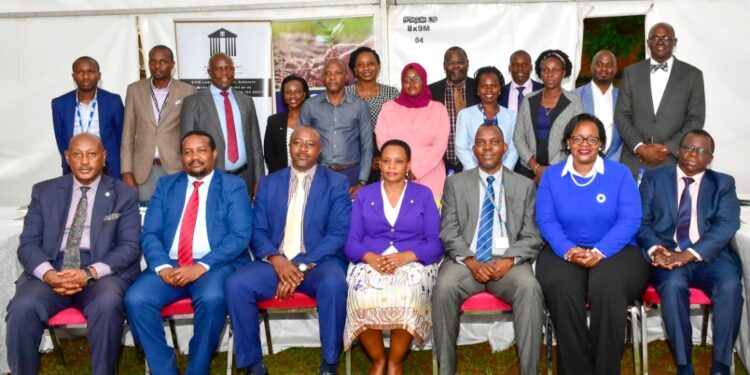The State House Investors Protection Unit (SHIPU) has conducted a stakeholders consultation meeting on the minimum capital requirements for investment licensing in Uganda.
During the meeting held at the State House Investors Protection Unit Offices in Kampala today, the unit head, Col. Edith Nakalema said SHIPU noted that there was a gap in having a clear investment policy after receiving a lot of concern from the business community and government agencies.
“But ALP Advocates helped us as the State House Investors Protection Unit to put together our thoughts and concerns that we gathered from Investors and traders at all levels,” Col. Nakalema said.
“The objective of this engagement is to review and deliberate upon the proposed policy paper on minimum capital requirements for investment licensing in Uganda because our main work is to coordinate with all government Ministries, agencies and departments as well as the private sector to ensure that we have a thriving investment climate in this country,” she added.
She also explained that the meeting offered a forum for reinforcing technical exchange of ideas among technocrats so as to explore ways of enhancing the environment for investment and businesses in the country.

Col. Nakalema said as stakeholders, they need to streamline the country’s investment environment by setting up favourable policies.
“How best can the Minimum Capital Investment Requirements benefit all businesses to thrive in the existing environment? The Minimum Capital Investment Requirements should support all businesses at whatever level,” Col. Nakalema said.
Col. Nakalema also decried the inefficiency of the Small Business Recovery fund and the Agricultural Credit Facility programs which are meant to revive and support businesses of Ugandans.
“The initiatives have not been publicised well. People even come to us asking about it. I have been in constant touch with Mr. Richard Byarugaba, the Director of Finance at Bank of Uganda. The conditions to get that fund are still a constraint to the would-be beneficiaries,” she said.
Mr. Francis Gimara, the Head of ALP Advocates said he was happy to work with SHIPU to support many businesses in Uganda.
“When the private sector is enhanced, then all of us win. We need more of these conversations to increase domestic and foreign investments, to increase partnerships that are geared towards growing the national purse and as well to appeal to Foreign Direct Investments (FDIs) as much as we can,” he said.
“Apart from practising the law, ALP looks at what else it can do to improve the ecosystem, legal and policy and it is a result of that, that we have been privileged to work with this unit in trying to see through some of the challenges that they have identified. We are trying to work out an appropriate legal system to help businesses grow from small to medium and big.”
ALP is an East African regional law firm that embodies the best qualities of the region; cooperation, hard work and progress.
The Director Economic Affairs, Ministry of Finance, Planning and Economic Development, Mr. Moses Kaggwa said the government is focused on how to promote investments in the country and it has put in place several avenues to achieve the goal.
“As the government we are thinking that we need to grow this economy 10-folds in 10 years. What should we do? We are focusing on Agro-Industrialisation as one of the game changers and adding value to everything that we are producing. We are also looking at tourism, mineral development including oil and gas, services and knowledge-based industry,” he said.
“On the cost of money, we are trying though we have not received a lot of success. We have the Uganda Development Bank (UDB) which ensures that at least people get working capital, we also have the Microfinance Support Centre which looks at SACCOs and small enterprises. Other areas we are looking at include the Parish Development Model which is trying to push money to Ugandans who are yet to join the money economy. We see that there’s some progress in that area. We now have excess electricity and we are trying to transmit it to areas where people need it. We are also rehabilitating the metre gauge railway to ease transportation.”
He however said that there are some impediments that are frustrating the endeavours such as high interest rates, poor infrastructure, the cost of regulation, corruption, among others.
“What is it that we are not doing right that we are not attracting investments? The high interest rates are working against us. Even when the interest rate is high, there are some people who cannot access that money because they don’t have collateral. We have issues that are related to infrastructure. Our infrastructure is not the best, we should improve it to attract investments,” he said.
“Some of the sectors are so highly regulated when it comes to licensing. For example, the hospitality sector, you find one person being demanded like 16 licensing. All this deter investments. As we are talking about investment, we should see a way of addressing the issue of corruption.”
On the issue of licensing investors, Mr. Kaggwa advised that this should be done in clusters.
“When attracting investors, we should focus on the quality of Foreign Direct Investment, not quantity; the quantity will not give us what we need.”
The Director In charge of Supervision, Bank of Uganda, Dr. Tumubweine Twinemanzi said as stakeholders look at the Minimum requirements for investment licensing, they should ensure that they put incentives in place to attract investors.
He added that these incentives such as tax holidays should be given to investors who really need them in order to serve the right purpose.
“One issue about tax incentives is that sometimes you give it to someone who is not supposed to get it where they are able to do business even without the tax holiday and we do so; what the government gets is to lose revenue. We should follow the right criteria to know the person who really needs incentives,” he said.
Dr. Ezra Muhumuza, the Executive Director of Uganda Manufacturers Association (UMA) called for a review of the current investment regime saying it does not favour domestic investors.
“The Uganda Investment Authority (UIA) ought to go back and create a regime with a comparative advantage to Ugandans to help us flourish,” he said.
Dr. Henry Onoria, a Knowledge Partner at ALP Advocates presented a paper on Uganda Investment Licensing policy (UILP).
He said the policy is mothered under the Investment Code Act (CA 2019) focuses on the aspects of Minimum Investment Capital Requirements (MICR), investment coordination, registration and incentives.
“The policy is considered to be a significant tool in fostering the level of investments in the country (both domestic and foreign) as it greatly determines the process of establishing a business investment,” Dr. Onoria said.
“The policy paper advocates for Policy alternatives including, Multi-tiered MCIR especially for the domestic investment MCIR. The tiers are suggested as USD30, 000 and USD 50,000 so as to achieve inclusiveness especially of the micro small and medium enterprises which form the majority of domestic investment capabilities.”
The meeting was also attended by the Uganda Registration Service Bureau (URSB) Registrar General, Ms. Mercy Kainobwisho, the former Attorney General, Mr. Fred Ruhindi, among other stakeholders.
Do you have a story in your community or an opinion to share with us: Email us at editorial@watchdoguganda.com













